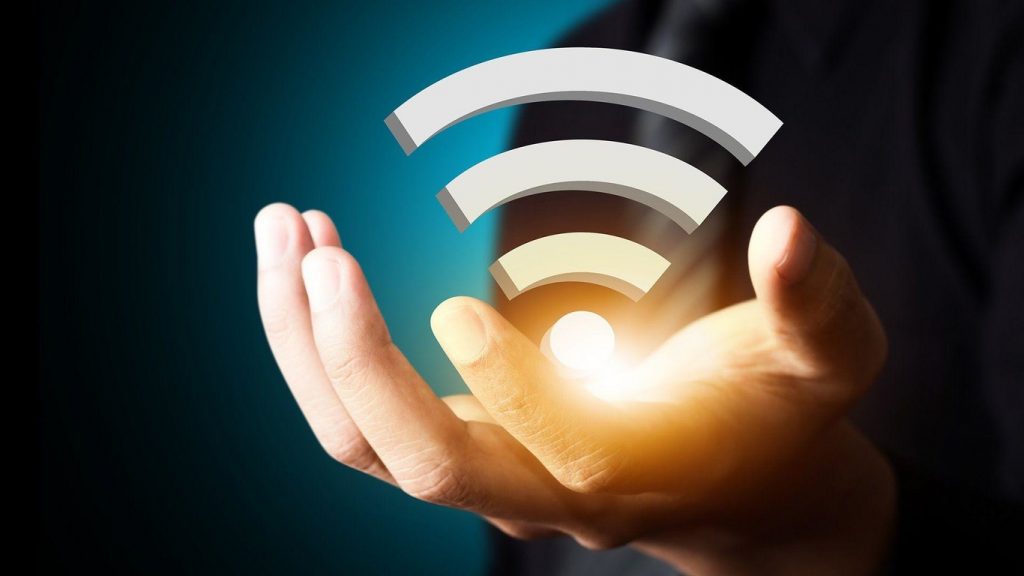WIFI stands for “Wireless Fidelity, ” a wireless communication technology that uses radio waves to connect two or more devices to exchange information. WIFI or often written as “Wi-Fi,” was first discovered by the NCR Corporation and AT & T in 1991 for the cash register system. However, this WIFI technology has been widely used on mobile devices such as Smartphones and Laptops to other electronic devices such as Televisions, DVD Players, Digital Cameras, Printers, Game Consoles, and even more broadly to other household devices such as lamps, refrigerators. And Temperature Control (AC). This WIFI technology is a technology based on the IEEE 802.11 standard. The holder of the Wi-Fi trademark, the Wi-Fi Alliance, defines Wi-Fi as “any wireless local area network (WLAN) product based on the Institute of Electrical and Electronics Engineers (IEEE) 802.11 standards”. Due to its ability to allow Local Area Networks (LAN) to operate without the need for cables (wireless), WIFI Technology is becoming increasingly popular. As a result, it is becoming a practical choice for most business or household networks.
WiFi is a local area network or LAN (local area network) that provides a fast connection and does not require cables. Therefore, WiFi is often referred to as WLAN or Wireless Local Area Network. Radio signals are the key to enabling communication on a WiFi network. This WiFi technology uses two radio frequencies to send and receive wireless signals. The two radio frequencies are the 2.4GHz and 5GHz frequencies. When the router receives data from the Internet, it converts it into a radio signal. Then, it sends it via a WiFi antenna to a WiFi receiving device such as a smartphone or laptop equipped with a WiFi circuit. Any computer or smartphone that receives this WiFi signal will immediately read it and convert it into data that the device can understand. So there is a connection between the user and the network.
Similarly, when sending information from a computer or cell phone, the device converts the data into a radio signal and sends it through an antenna. Wireless routers receive and translate signals. The router then sends the information to the Internet via a physical wired Ethernet connection. Indoor WiFi routers or hotspots range about 30 meters but can be longer outdoors. The connection speed also highly depends on the distance between the receiving device and the wireless signal source. WiFi connectivity improves as the user’s device moves closer to the router or hotspot. On the other hand, if you are far from the signal source, your WiFi signal connection will be slow.
Internet is for connectivity and communication; access to information, knowledge, and education; address and mapping; business convenience; and entertainment. Quoting the Encyclopaedia Britannica, the internet is a vast network connecting computers worldwide. Everyone in the world can share information and communicate with an internet connection. Today, the internet plays an important role in various fields. Summarizing from Computer Hope, here is an explanation of 5 benefits of the internet:
1. Connectivity and Communication.
The internet can connect almost the world. People with similar interests can connect or ask questions to experts in their field. We can send emails and make voice or video calls to anyone worldwide. In the past time, it took days or months. Jom Apply unifi fibre coverage.
2. Access Information, Knowledge, and Education
The Internet contains an endless variety of knowledge and information. The internet allows us to study any topic. Internet is helpful in education because material about various sciences can be found online.
With the internet, we can improve our abilities, master various subjects that may not be obtained from formal education, and become proficient in doing any task. For example, using a search engine like Google, we can ask any question and find a web page that will provide the answer and related information.
3. Addresses and Mapping.
The Internet can help users get addresses or find locations anywhere in the world through maps with the help of GPS technology or search engines like Google. We can even find the fastest route to the destination.
4. Ease of Business.
The internet makes it easy for the world of business, buying and selling, and transactions. The internet can be a place to advertise and sell goods or services at any time to anyone in the world. For example, the Internet makes it easier to access bank accounts, make transactions, and send money. Many services make it possible to find out and pay bills electronically. The internet also allows for online shopping. We can find products of interest without going to the store directly.
5. Entertainment Facilities.
The internet gives more expansive access to the world of entertainment, such as watching videos, watching movies, listening to music, and even playing online games.

